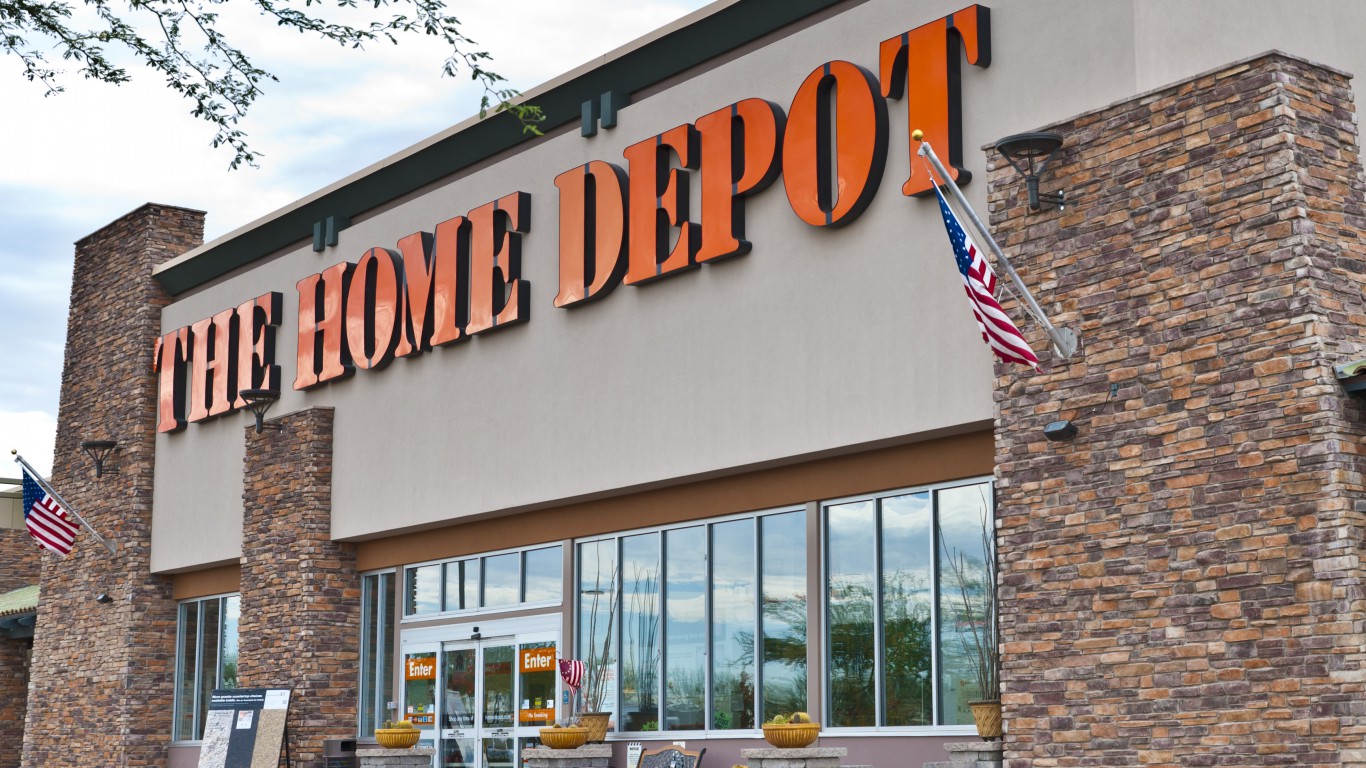

Home Depot Inc. (NYSE: HD) has issued its forecast for the next fiscal year. The figures were a disappointment. They also beg the question of the health of the American real estate market, at least for those who will keep their house near term.
Among the theories about the home market are that when people do not move, they continue to upgrade where they live. Most homes require some level of general repair over time. For others, people want a better home, if they can afford it. With unemployment at a 50-year low and relatively robust consumer confidence, the home improvement market should be good. A look at the Home Depot figures should cause anxiety that these factors are not enough to trigger American home upgrades.
[in-text-ad]
The nation’s largest home improvement company announced it expects revenue growth of about 3.5% to 4.0% in fiscal 2020 and comparable sales growth of about 3.5% to 4.0%. While the figures seem healthy at first, they are a downgrade from earlier comments. Craig Menear, board chair, chief executive and president, commented, “We are confident that the investments we are making in the One Home Depot experience will address the evolving needs of our customers. We are building on our distinct competitive advantages to capitalize on a large and fragmented market opportunity and extend our leadership position for years to come.” It is really not clear what that means.
The trend of a mobile America where people regularly move from place to place for jobs and lifestyles has slowed, according to recent data. As a matter of fact, people are moving at the lowest rate recorded. Census data on this goes back to 1948. For those moving, these are the 50 best cities to live in. But, people who do not move, do they upgrade the homes they live in? According to the Home Depot forecast, maybe not.
Essential Tips for Investing: Sponsored
A financial advisor can help you understand the advantages and disadvantages of investment properties. Finding a qualified financial advisor doesn’t have to be hard. SmartAsset’s free tool matches you with up to three financial advisors who serve your area, and you can interview your advisor matches at no cost to decide which one is right for you. If you’re ready to find an advisor who can help you achieve your financial goals, get started now.
Investing in real estate can diversify your portfolio. But expanding your horizons may add additional costs. If you’re an investor looking to minimize expenses, consider checking out online brokerages. They often offer low investment fees, helping you maximize your profit.
Thank you for reading! Have some feedback for us?
Contact the 24/7 Wall St. editorial team.



